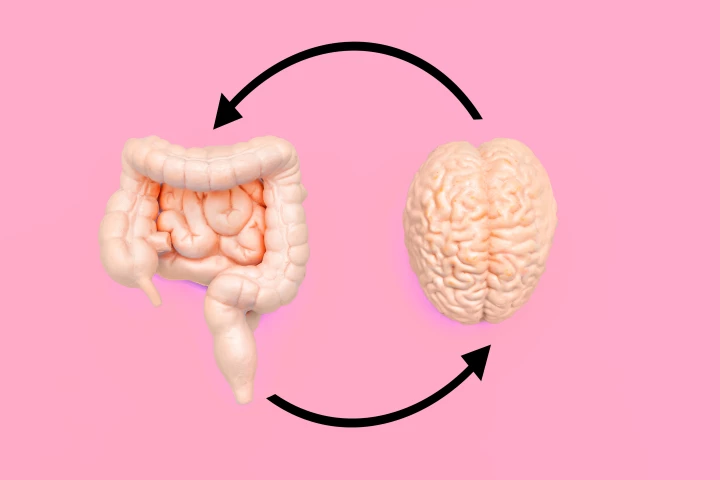Fat cells
-
Consuming too much of the dominant fatty acid in olive oil may drive the production of fat cells, creating conditions that could lead to storing more fat long-term. Until now, weight gain has been largely attributed to the calorie content of such fats.
-
A new study has found that diet-driven weight gain triggers impaired cognitive functioning an symptoms of anxiety, adding to the growing body of evidence that there's an intrinsic biological link between our gut health and our mental health.
-
Following on from a remarkable study in mice, scientists have now confirmed that silencing a certain protein in muscle tissue leads to energy-deprived human cells seeking out fat for fuel, while blocking the body's ability to store extra fat cells.
-
If you're among the half of US adults who have tried to lose weight in the last year, you'll know how enthusiasm wanes when you hit the inevitable "plateau." New research shows that this is an adjustment period, and long-term success is over the hill.
-
Extracts made from parts of the cashew plant that are usually thrown away when the nuts are processed commercially were found to significantly limit the development of fat cells and the accumulation of fat, according to new research.
-
More than a million people of nearly all ages lace up their trainers and hit the pavement in a marathon every year. And while running has a suite of health benefits, a long-distance race may not be such good news for the brain in the weeks that follow.
-
Scientists in China have found a new potential drug target for weight loss. Blocking a protein called CD44 has been shown to protect against obesity in mice on a high-fat diet, specifically by suppressing the formation of white fat cells.
-
There's a growing body of evidence that gold nanoparticles can trigger significant weight loss that targets fat, without affecting muscles, plus heal organs and improve blood-glucose levels. A new study makes a strong case for the first-ever human trial.
-
Researchers have discovered a new type of tissue, a soft and flexible ‘fatty cartilage’ that could revolutionize the treatment of traumatic injuries, birth defects, and cartilage-damaging diseases like osteoarthritis, rheumatoid arthritis and lupus.
-
Most people know that body fat stored around the midsection can spell disaster for cardiovascular health. But Harvard researchers have now discovered another problematic fat-storage location in the body that's been largely overlooked.
-
In the first study of its kind, excess abdominal fat has been associated with chronic pain, but the good news is that losing weight that can reduce waistlines could help relieve widespread musculoskeletal conditions and greatly improve quality of life.
-
We’ve all spent time and effort on pointless tasks so we look busy when the boss walks past. But now scientists have discovered a new type of fat cell in the body that does the same thing, burning energy and producing heat with pointless busywork.
Load More











